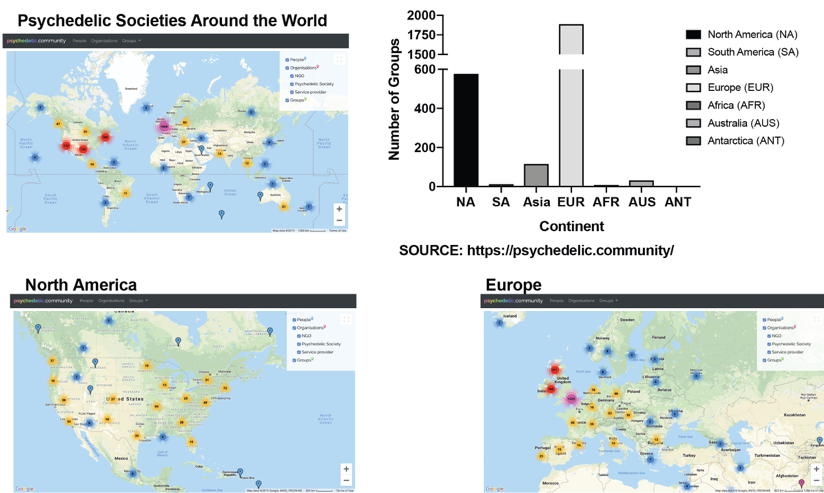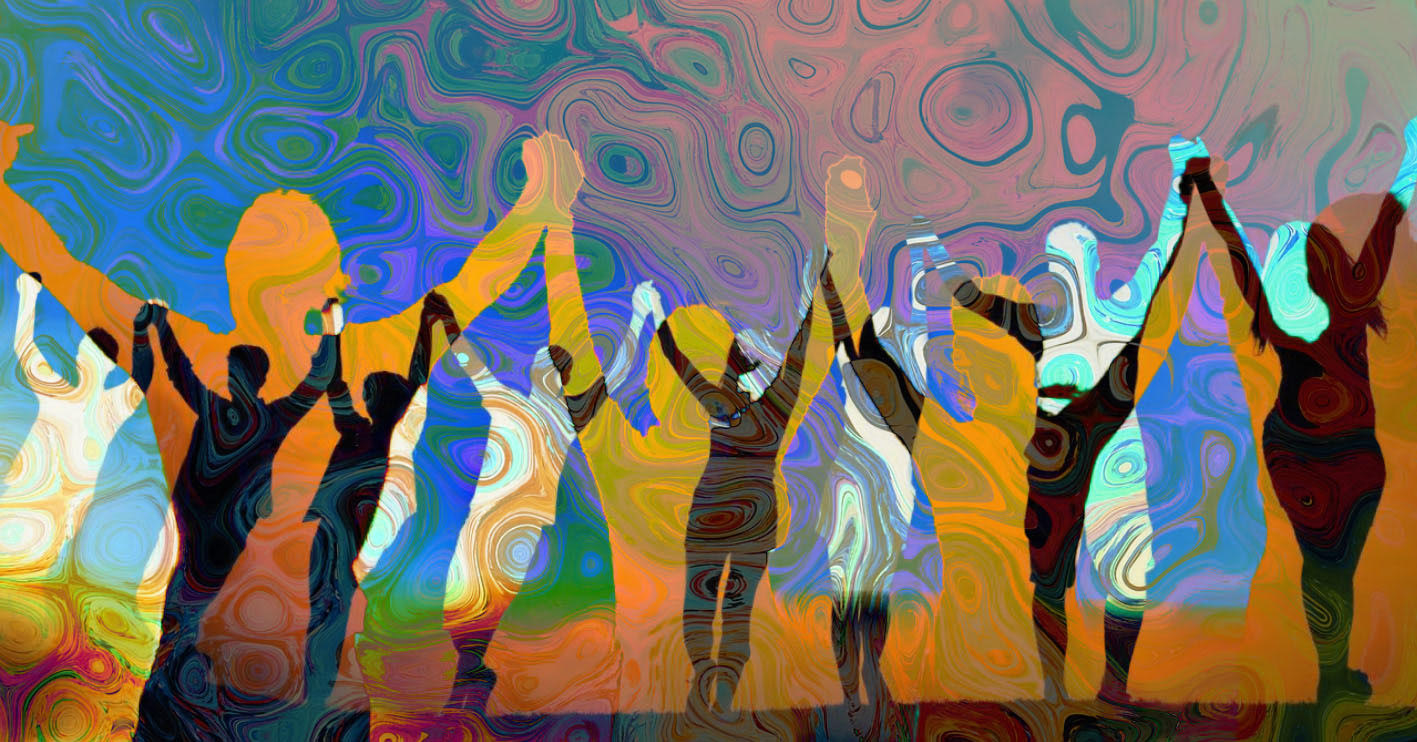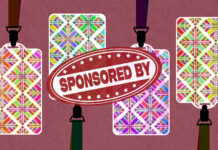- Building a Psychedelic Community During the War on Drugs - April 25, 2019
- The Five Phases of Psychedelic Initiation - April 22, 2019
I moved to Minneapolis from San Francisco in October of 2017 to plant a psychedelic seed in the middle of our country. I also moved here because I had recently accepted a new position as a tenure-track assistant professor, following nearly 20 years of attending various universities to earn all the credentials and experience required to get such a position.
I wanted to connect with like-minded people who shared my passion and dedication towards advancing the transformational potential of psychedelic experiences.
When I made the decision to leave the warm sunny beaches of California to live in the arctic tundra of Minnesota, my intention was to create another node in the existing network of psychedelic societies that were starting to pop up all over the world. I had joined the San Francisco Psychedelic Society in 2011, and began to immerse myself in this community focused on psychedelic research, cognitive liberty, drug policy reform, harm reduction, and social justice. I wanted to connect with like-minded people who shared my passion and dedication towards advancing the transformational potential of psychedelic experiences. In February of 2018, after moving to Minneapolis, I wanted to connect with other psychonauts and build community in my new home. But where could I find a psychedelic society in my new town?
As I had done when I moved to San Francisco, I looked on Meetup to see if there was already a psychedelic society. The closest thing I found was a psychedelic integration group that had 60 members, but hadn’t had any meetings recently. There was also the global psychedelic community that has all the people, communities, and organizations that currently exist on an interactive map to help find one near you.

But no official group seemed to exist in the Twin Cities; so, I decided to start my own Meetup group to bring together the psychonauts in Minnesota. Thus, the Psychedelic Society of Minneapolis was born, armed with the energy and excitement ingrained from what I learned from being a member of the San Francisco Psychedelic Society. It took about two months before we had our first member meeting, and nearly fifty people showed up, including the world-famous Dr. Dennis McKenna. Prior to this first meeting, while I partly expected most people would already know each other in some way, what I discovered was a room full of people who had felt isolated and alone with respect to their personal psychedelic use. An entire room of people who felt terrified about disclosing this detail about themselves to others in their everyday communities, for fear of retribution, further ostracization, and potentially even the loss of their jobs or freedom. But there was also an important detail that everyone shared; that psychedelics had transformed their life in a profound and meaningful way, and they were so grateful to have “found the others.”
Tales started to pour in about how people felt there was no one to talk to about their psychedelic use and interest, and finally having a place to do so was giving them hope and helping them to feel less isolated and alone around this highly controversial, yet personally meaningful topic.
This was a fact that gave me hope for being able to build a community around this in Minnesota. Not only because there was sufficient interest, but also a substantial need for such a community. Tales started to pour in about how people felt there was no one to talk to about their psychedelic use and interest, and finally having a place to do so was giving them hope and helping them to feel less isolated and alone around this highly controversial, yet personally meaningful topic.
Shortly after our community began to blossom, the highly publicized new book about psychedelics by best-selling author Michael Pollan came out, and our community saw a surge of newcomers interested to learn more about psychedelics. This was both exciting and challenging; psychedelics were becoming more accepted in the “mainstream,” but also bringing a new wave of psychonauts who were difficult to filter through safely and responsibly. This flood of new psychonauts has been reading sensationalist stories in the popular press touting psychedelics as the medical breakthrough for a variety of serious mental illnesses. For those newly aware of this renaissance, especially those who are suffering profoundly in some way, seeing such headlines gives the impression that psychedelics are a “magic bullet” cure for all their woes.
While psychedelics do have a tremendous capacity for transformation and healing, due to the way they promote the brain’s natural ability to change hardwired patterns, such a change is made possible by flanking these experiences with ample preparation and integration. A single experience won’t heal all your pain. It’s a way to find patterns within your own mind and body that are perpetuating behaviors and thought patterns that lead to pain and suffering. Psychedelics are very helpful at sifting through all the chaos within our minds and finding the buried problem that we are ignoring in our lives or in our past, and giving us the opportunity to face them and start to change them. No doubt, there is a prominent “before and after” for those who have had a psychedelic experience, but the “afterglow” from that doesn’t last long, unless maintained with behavioral changes. For those who begin to do psychedelics regularly, this afterglow effect may be compounded into ecstatic states of consciousness that can both help and harm people, depending on the set and setting.
As the organizer of the Psychedelic Society of Minneapolis, and as an academic mental health researcher wanting to help bring psychedelics into the fold of mainstream psychiatry, I feel conflicted about how best to help these communities. Built upon a typology I’ve proposed about the various developmental phases towards psychedelic maturity, I feelsome caution must be taken when interacting with this wave of new psychonauts, and these phases should be considered when forming a new psychedelic community with a wide range of personalities.
How to Start a Psychedelic Society
Newcomers who are excited, curious, and, sometimes, desperate, may become a liability, depending on their level of situational awareness in these expanded states of consciousness. A certain level of trust must be built with those we choose to share these vulnerable aspects of our lives with.
Our goal is to have fair representation of psychonauts in various phases, while also safeguarding the legitimacy of the psychedelic renaissance during the current War on Drugs. Newcomers who are excited, curious, and, sometimes, desperate, may become a liability, depending on their level of situational awareness in these expanded states of consciousness. A certain level of trust must be built with those we choose to share these vulnerable aspects of our lives with. With this in mind, our community has a screening intake process for vetting new members into our private community. Because this is already a very controversial topic to be so open about, most of our community members prefer to maintain their privacy and confidentiality so they can feel safe enough to open up to others about their curiosity or experiences.
We have a selection committee made up of about five current members, and we all work together to come up with guidelines based on feedback from the larger community. People who have requested to join are split up into groups and asked a set of basic questions to assess their trustworthiness in the private community. There is a first wave of screening questions, including asking what they do for work, what their hobbies and passions are, what their experience level is with psychedelics, and why they want to join the group. If those aren’t all answered, we send a follow-up message to gather more information. If they are approved, they are sent our guidelines and codes of conduct; we then continue the screening in the form of a probationary period where we observe them at meetings and see if they are authentic and trustworthy in our private meetings. If someone seems to be problematic, or multiple people report violations of our codes of conduct, we have a vote on whether they should be removed.
Red flags we look for are indications that someone intends to exploit the vulnerabilities in our community in some way. Such exploitations may come in the form of police or informants trying to prey upon and bust people by soliciting drugs from the community, and others, such as pseudo-shamans or other entrepreneurs, trying to profit off the suffering of others, either for monetary or egoic gain. Drug seekers may exhibit unsafe behavior that exposes the community to legal and safety risks, and predatory people may come into our vulnerable spaces solely for personal gain, whether it be physical, emotional or spiritual, sometimes at the expense of others’ comfort and safety.
By having a member-screening protocol and codes of conduct, some people have been excluded or were removed for violating our guidelines or exhibiting behaviors that set off red flags for our members. While some of those removed or denied membership simply went away, others have had a hostile and volatile response to being rejected. They are angry at the organizers, particularly myself, for being excluded, and that valuable information about the transformational potential of psychedelics is being withheld from them.
As the public perspective on psychedelics shifts from one of stigma to one of hope and healing, it will be challenging to navigate access within a legal system that still ostracizes and punishes those on the psychedelic path.
To address this, our community is actively creating more public content focused on education and harm reduction. We’ve developed a public website that provides access to information and resources across a variety of domains related to the psychedelic renaissance. During these chaotic times, there is much suffering that psychedelics may help alleviate. As the public perspective on psychedelics shifts from one of stigma to one of hope and healing, it will be challenging to navigate access within a legal system that still ostracizes and punishes those on the psychedelic path. Having psychedelic societies in place will help those on this path meet the challenges around safe and legal opportunities to learn and experience more about psychedelics.
Take a minute to browse our stock:
Did you enjoy reading this article?
Please support Chacruna's work by donating to us. We are an independent organization and we offer free education and advocacy for psychedelic plant medicines. We are a team of dedicated volunteers!
Can you help Chacruna advance cultural understanding around these substances?
















